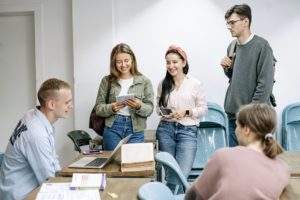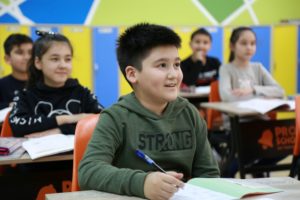By Ina Gonda-Ramos
A year and a half after the first lockdown in the Philippines, we’re still here.
They say it takes only 21 days to get used to something new, but everyday now feels like day 1. There’s just never a day when everything you plan turns out the way you expect it to.
“But it isn’t all that bad,” you may think. New forms of businesses are booming, innovations have made our lives easier, and more time is spent with family. But the education system worldwide is still in havoc. Everyone is still struggling—barely making it day by day.
We can’t wait to go back to how it was before #COVID19, but will it ever be the same again? Do we really want that again?
Or do we just want to go back because we’re so afraid of cutting ties with our old ways?

Nothing beat face-to-face classes for sure. We delighted in the campus magic, the incomparable socialization, and somehow, the convenience of learning, whereas now, we long for human interaction between teachers and classmates as we constantly struggle to secure a stable internet connection while making sense out of all class lessons. What a disheartening time for all of us.
You see, I am one with you in believing that face-to-face classes are ideal. But allow me to share my reflections as I try to keep a positive attitude amidst all the struggles. I try my best to see the good as much as I could.
While online learning screams anti-poor, it also exposes a lot of loopholes and incompetence in the education system worldwide. But hear me out—this piece isn’t meant to negate or invalidate anyone or any institution’s efforts. In fact, I want this piece to highlight how hard everyone is trying just to make education work.
Because of the power of the internet, a lot of teachers have been publicly exposed without their consent. It breaks my heart every time this happens. I understand there are worksheets that sometimes don’t make sense, deadlines that seem to be unrealistic, and activities that feel too many.
Let’s not forget that education—in its truest sense—should never be just about grades; instead, it should promote the fulfillment of human development. This can be achieved only if the current knowledge and skills of students are stimulated to unlock new possibilities. It is through challenges that we all become better.
I have witnessed a lot of drastic changes in the last decade as a practitioner in our own education system: from the implementation of K to 12 curriculum to the sudden shift in online and modular learning. Teachers have gone through long-term mental exhaustion to stay updated and adjust their own teaching philosophies, strategies, and class management. And in the last 10 years, I have experienced talking to parents of all kinds first hand. I have seen extreme parenting styles in my time as a school administrator.

There are parents who are heavily involved while some are hardly present in the learning process. For us, teachers, it would be a joy to meet someone in the middle of the spectrum—those who stay involved and, at the same time, equally understand when to step back and allow us to do our job even if it involves a little bit of struggling on the students’ end. Regardless of the parenting style, we try to understand the level of support because we believe that all parents love their children and want only the best always.
So I also ask for the same support and understanding of the truth that perfect teachers do not exist. But there are millions of us who try our best always. Just like you, parents. Our work is not like any product-based business where we can reap the profits immediately after we have been paid. We always carry a long-term vision, that is, to prepare our students for their future endeavors and it is hoped, for success wherever they may be after being with us. It is only then that we know we have done a good job.
Exercising our liberty in curriculum implementation as a practitioner in the private sector has its own challenges because we are still bound by government policies. We continue to have limitations financially. As captains of our own ships, we have our own strategies in navigating the new normal and yet we still have to comply with policies misunderstood by many. I understand that work in the government entails bigger responsibilities and risks. But maybe, there could be a way for us to bridge our best practices so that together, we can serve all children better. All private school institutions rely on the government as a whole and we plead for its support to prioritize the youth.

If we are all driven to provide quality education, we must make investments that prioritize policies that implement developmentally appropriate practices and not be concerned about the number of webinars attended or any traditional metrics. Invest smart.
Let us not wait for face-to-face classes to return for education to make sense. It will be too late. We must know that everything our students experience today would grow into a possible lifetime of learning. Remember that development needs to be encouraged even outside the formal schooling system. It is the knowledge and skills acquired every minute of today that will open doors for employability, productivity, health, and well-being in the years to come.
Parents, let your children learn from their mistakes. They are all doing great.
To our government, may our combined efforts lead us to learning for all.
And to the teachers, you are today’s silent and greatest heroes of our time.
Thank you for all that you do.
You are loved in all ways. Always.
Around this time last year, I wrote an article on this topic. You can access it here.
Banner photo by Carl Jorgensen on Unsplash.
Ina Gonda-Ramos is an alumna of the UA&P School of Education and Human Development.
Leave a Reply